
In our Center For Eurasian Studies (AVİM) analysis at the beginning of 2017 titled “Brexit: New Paradigm Shift for Globalization and Signal for New World Order,”[1] we referred to the United Kingdom (UK) Prime Minister Therasa May’s speech at the 2017 Davos World Economic Forum in which she stressed that by leaving the European Union (EU), the UK was embracing the world and would build a “truly Global Britain”. She also made the following explanations:
“… our decision to leave the European Union was no rejection of our friends in Europe, with whom we share common interests and values and so much else. It was no attempt to become more distant from them, or to cease the co-operation that has helped to keep our continent secure and strong. And nor was it an attempt to undermine the European Union itself. It remains overwhelmingly and compellingly in Britain’s national interest that the EU as an organization should succeed. It was simply a vote to restore, as we see it, our parliamentary democracy and national self-determination. A vote to take control and make decisions for ourselves. And, crucially, to become even more global and internationalist in action and in spirit too. Because that is who we are as a nation. Britain’s history and culture is profoundly internationalist. We are a European country, and proud of our shared European heritage, but we are also a country that has always looked beyond Europe to the wider world. That is why we are among the most racially diverse countries in Europe, one of the most multicultural members of the European Union, and why – whether we are talking about India, Pakistan, Bangladesh, America, Australia, Canada, New Zealand, countries in Africa, Asia or those that are closer to home in Europe – so many of us have close friends and relatives from across the world. And it is why we are by instinct a great, global, trading nation that seeks to trade with countries not just in Europe but beyond Europe too.”[2]
These explanations of Prime Minister May concerning Brexit recall the controversy during the Brexit campaign over the alleged words spoken by Winston Churchill to Charles de Gaulle before the Allied invasion of France in 1944 that “Every time we have to decide between Europe and the open sea, it is always the open sea we shall choose.”[3]
In this respect, the supporters of the “Leave” campaign in the UK asserted that Churchill, on 11 May 1953 during his term as Prime Minister, told the House of Commons concerning Britain's relationship with Europe that; “We have our own dream and our own task. We are with Europe, but not of it. We are linked but not combined. We are interested and associated but not absorbed. If Britain must choose between Europe and the open sea, she must always choose the open sea.”[4] However, opponents of Brexit considered these sentences as “remarkably revealing deception” and claimed that Churchill never wrote or uttered the words ascribed to him. Nevertheless, the opponents of Brexit also accepted that Churchill wrote the following sentences to the America’s Saturday Evening Post published on 15 February 1930 and pronounced the following words to the House of Commons on 11 May 1953:
“We have our own dream and our own task. We are with Europe, but not of it. We are linked but not combined. We are interested and associated but not absorbed… Where do we stand? We are not members of the European Defense Community, nor do we intend to be merged in a Federal European system. We feel we have a special relation to both. This can be expressed by prepositions, by the preposition "with" but not "of"—we are with them, but not of them. We have our own Commonwealth and Empire.”[5]
Winston Churchill’s above sentences give us the hints of the historically ambivalent and skeptical approach of the UK to EU integration.
When and how Brexit will take place?
Following the 23 June 2016 Brexit referendum, the UK formally tabled its Article 50 notification which gave its formal notice to leave the EU. Hence, the UK is now formally scheduled to leave the EU on Friday 29 March 2019 at 11 pm UK time.[6]
As it is closely followed by the world press and public opinion, Brexit negotiations between the UK and the remaining 27 EU Member States are still underway. According to scholarly sources, negotiations have three main components:
“The first is the actual Article 50 withdrawal agreement that the treaty specifies should be concluded by March 2019, but could take longer to negotiate if there is unanimous agreement on such an extension among the EU 27. The second is a longer term framework agreement between the UK and the EU that cannot be formally concluded until after the UK has left and that could take much longer to negotiate. Finally some transitional arrangements are almost certain to be necessary.”[7]
One of the most controversial and difficult issues in the negotiations is the land border between the UK and the EU. When the UK leaves the EU, the 500-kilometer border between Republic of Ireland and Northern Ireland of UK will become the land border between the UK and the EU. According to BBC, neither side wants to see a return to checkpoints, towers, customs posts, or surveillance cameras at the border. As such, the UK and the EU agreed to put in place a "backstop"; a kind of safety net to ensure there is no hard border whatever the outcome of future trade talks between the UK and the EU. The backstop agreed between the two parties would keep Northern Ireland aligned to some EU rules on things such as food products and goods standards. This would prevent the need for checks on goods at the Irish border, but would require some products being brought to Northern Ireland from the rest of the UK to be subject to new checks and controls. The backstop would also involve a temporary single customs territory, effectively keeping the whole of the UK in the EU customs union. If future trade talks broke down without a deal, the backstop would apply indefinitely. The arrangement would end only with the agreement of both the UK and the EU.[8] However, because the fear that it could leave the UK tied to the EU indefinitely with no say over its rules and no ability to strike trade deals with other countries, this deal on withdrawal agreement did not get the consent of the UK’s House of Commons.[9]
It is reported in the press that there is no sign of progress in the latest negotiations. It is mentioned in the reports that the EU “wants to avoid any legal add-on to the withdrawal agreement that undermines the terms of the backstop, which would keep the UK in a customs union and Northern Ireland in the single market if there was no other alternative to avoiding a hard border with Ireland.”[10] In this respect, it should be underlined that the UK's withdrawal from the EU without an agreement still remains as an option.
Regardless of the details and the result of Brexit negotiations between the UK and the EU, there is no doubt that a new era in EU history will begin after the Brexit.
Possible consequences of Brexit for the EU
There exists a wealth of scholarly literature examining the reasons of the Brexit. There is also an academic discussion on whether the EU will become stronger or weaker, or in the worst-case scenario, enter into a disintegration phase. The key question in this connection is the future of the EU after Brexit. In this respect, before making an assessment on the issue, it is worth to briefly discuss what the UK contributes to EU and therefore what it would take away when it leaves the EU.
A scholarly source makes the following explanation on this issue:
“The EU would lose 12.8% of its population (Eurostat 2016), an economy that contributes 19.4% of the EU’s total exports (excluding intra-EU trade) and is 17.6% -or around one sixth—of the EU’s economic area. Within the EU Britain runs a large trade deficit with the rest in goods and services that in 2014 was £61.6 billion (ONS 2015). The EU, especially states such as Germany, would need to make up for the UK’s yearly net contribution to the EU budget, which in 2015 was £8.5 billion. In security the EU would lose one of its two serious military powers and a permanent member of the UN Security Council.”[11]
As the above quoted passage shows the UK, in spite of the fact that is not among the founding countries of the EU, it has so far been amongst the three core countries (alongside Germany and France) in the Union. As far as politics and security is concerned, the EU stands to lose one of its two permanent members in the United Nations Security Council as well as one nuclear weapon-wielding military power. Since the UK is among the world’s largest economies, the same is true also in the economic field.
In short, when it comes to numbers and politico-military power, there is no doubt that Brexit will considerably weaken the EU in terms of its total strength. It should be underlined that after the Brexit, the EU will politically shrink to an area whose core overlaps with that of the Carolingian empire of 1,200 years ago.[12] Nevertheless, it is highly unlikely that the EU will enter into disintegration phase in the aftermath of the Brexit.
What does the 27-member EU mean for the future of the EU? What are the EU’s options?
The first reaction of the 27 EU governments after the Brexit referendum was the Bratislava Declaration of 16 September 2016 and Road Map.[13] Concerning the Brexit, it states that;
“Although one country has decided to leave, the EU remains indispensable for the rest of us. In the aftermath of the wars and deep divisions on our continent, the EU secured peace, democracy and enabled our countries to prosper... We are determined to make a success of the EU with 27 Member States, building on this joint history... The EU is not perfect but it is the best instrument we have for addressing the new challenges we are facing”.[14]
The declaration, in its essence, does not say anything new other than repeating what has been said so far.
The European Commission of the EU, as a contribution to the Rome Summit on the 60th Anniversary of the European Community (EC) Treaties and as a starting point for debate amongst the member states, prepared “The White Paper on the Future of Europe: Reflections and scenarios for the EU27 by 2025”. At the end of its introduction section, the paper poses the following question: “What future do we want for ourselves, for our children and for our Union?”[15] The paper presents a set of five options for the future: a) carrying on, b) nothing but the single market, c) those who want to do more, d) doing more efficiently and e) doing much more together. It outlines their respective advantages and disadvantages but emphasizes that this is just an initial discussion paper and it does not explicitly support one option over another. [16]
The March 2017 Rome Declaration to commemorate the 60th anniversary of the EC Treaties is not much different in content from the previous declarations regarding the future of the EU. It does not go beyond repeating the clichés regarding the solidarity and unity in the Union. The said declaration refers to the “pride in the achievements of the European Union” and states that;
“[…] construction of European unity is a bold, far-sighted endeavor. Sixty years ago, recovering from the tragedy of two world wars, we decided to bond together and rebuild our continent from its ashes… The European Union is facing unprecedented challenges, both global and domestic… We will make the European Union stronger and more resilient, through even greater unity and solidarity amongst us and the respect of common rules. Unity is both a necessity and our free choice. Taken individually, we would be side-lined by global dynamics. Standing together is our best chance to influence them, and to defend our common interests and values. We will act together, at different paces and intensity where necessary, while moving in the same direction, as we have done in the past, in line with the Treaties and keeping the door open to those who want to join later. Our Union is undivided and indivisible.”[17]
It should be underlined that The Bratislava and Rome Declarations give little concrete indication for the future strategic road map for the EU other than providing the lowest common denominators binding the members of the Union. However, there is no clarity for action. The Commission’s White Paper, as mentioned above, only presents options and outlines their respective advantages and disadvantages without indicating any preference.
At this point, the key question comes into the scene: Who will lead the EU and show the way to the future?
French solution to the EU leadership: Franco-German axis.
The sixth French National Report in the New Pact for Europe[18] series published in September 2017 pointed out that the French National Reflection Group (NRG)
“discussions widely bemoaned the lack of vision, leadership, common storytelling or solidarity at both European and national levels. The dominant feeling is that the ‘community spirit’ of the 1950s has vanished. Against this backdrop, the NRG policy proposals for the future of Europe have called for a renewed sense of leadership, vision and European spirit.”[19]
In this vein, they clearly say that the leadership is needed for EU 27.
The said report in its executive summary section states that “According to the French people, French leadership in Europe and a well-balanced Franco-German relationship is the right combination for an efficient Europe.” The Part 2 of the report bears the title of “Rethinking Leadership and Integration – The Challenges of The Union”. Under the subtitle “Leadership: Still a Franco-German Issue?“, it is stated that;
“The solution to the leadership riddle also lies in the hands of the German political class and public. The elections in September 2017 may or may not change the position of Berlin in the EU. But as far as the role of Paris in Europe is concerned, the question remains open: is France still a co-pilot with Germany? Or is it a junior-partner alongside other bigger members?”[20] The report also states that “Following the election of Emmanuel Macron, France needs to implement structural reforms to earn and consolidate the trust of its partners, namely Germany. Then, and then only, will France regain influence on the course of European integration.”[21]
In summary, the report stresses that the French-German duo should lead not only the EU but also whole of continental Europe.
What was the Carolingian Europe?
The Carolingian Empire (800–888) was an empire in western and central Europe during the early Middle Ages ruled by the Carolingian dynasty who had ruled as kings of the Franks. The Frankish king Charlemagne was crowned by Pope Leo III on the Christmas Day (25 December) in the year 800 in Rome as the first Emperor of the Holy Roman Empire.
According to scholarly sources, “advocates of a tight Franco-German alliance occasionally refer still to the Carolingian empire of Charlemagne (742–814) which covered much of contemporary France and Germany.”[22] This part of Europe is considered by the same advocates of Franco-German alliance as the “core Europe” or the “Carolingian Europe”. The German Christian Democrats Wolfgang Schäuble and Karl Lamers, in a published document in 1994 titled “Reflections on European Policy”, described this region as “The core of the solid core is Germany and France” (Den Kern des festen Kerns bilden Deutschland und Frankreich).[23] In this context, Schäuble & Lamers “proposed a ‘hard core’ Europe, in which a group of countries based around France and Germany would co-ordinate their policies in order to lead the Union as a whole.”[24]
Why does Franco-German axis glorify Charlemagne as the Father of Europe and what are the signs of new Carolingian European Union?
Per the view of Franco-German axis, Charlemagne was the first recognized emperor to rule from Western Europe since the fall of the Western Roman Empire and is regarded as the father of Europe by the proponents of this view.
As known, French President Emmanuel Macron and German Federal Chancellor Angela Merkel signed on 22 January 2019 a new “Treaty on Franco-German Cooperation and Integration” in Aachen 56 years after Chancellor Konrad Adenauer and President Charles de Gaulle signed the Élysée Treaty in 1963 in the same city.[25]
Angela Merkel, in her speech at the signing of the Treaty, referred first to the historical importance of the Aachen (Aix-la-Chapelle) where signing ceremony took place and described the city as “the principle residence of Charlemagne, the one whom we call the Father of Europe.” Merkel referred to the creation of joint Franco-German European Army and stated that “We are committed to developing a common military culture, a common defense industry and a common approach to arms exports. In so doing, we intend to help to create a European army. This will only work, however, if this goes hand in hand with efforts to coordinate our foreign policy.”[26]
Likewise, French President Macron in his speech refered several times to the responsibility of France and Germany to lead Europe. In this respect Macron stated the following:
“At a time when our Europe is threatened by nationalist movements emerging within its borders, when Europe is being upset by a painful Brexit, when Europe is worried by major international changes which go far beyond nations… in this world and this Europe, Germany and France must also shoulder their responsibility and show the way forward… we will be able to exercise together this new French-German responsibility for Europe… Unity, solidarity and cohesion are the key words of the treaty we are signing. Europe will not survive a lack of unity; it would die. Therein lies the new French-German responsibility for Europe… the friendship between Germany and France, that our joint projects, that our ambition for Europe is what genuinely protects and what genuinely allows us to regain control over our lives…”[27]
It should be also mentioned that Germany and France, announced immediately following the signing of the Aachen Treaty their intention to establish joint cultural institutes in various countries with the objective of “shouldering responsibility for Europe”.[28] It is worth to mention that in accordance with the Article 8 of the Aachen Treaty, “The admission of the Federal Republic of Germany as a permanent member of the United Nations Security Council is a priority of Franco-German diplomacy” for the upcoming period.[29] There is no doubt that this initiative aims to fill the gap that emerged in the UN Security Council with the UK’s eventual exit from the EU. Besides that, in Article 7, they explained their intention to work together in Africa where both countries - especially France- have a long and ruthless colonial past.
Conclusion
With this joint initiative, France and Germany claim that they are “shouldering responsibility for Europe”. In doing so, they set aside the other EU states and declare their privileged “core status” in the EU and in the Europe. They wish to return the French and German-centric “variable geometry”, “core Europe”, “multi speed Europe” and “concentric circle Europe” concepts of the past under the guise of “shouldering responsibility for Europe”.
One of the most impressive titles in the European press concerning the signing of the Aachen Treaty was used by Politico: “Macron and Merkel’s treaty tests European nerves”.[30]
According to Politico, “talk of revving up the engine that has been at the center of the European project makes some other members of the EU nervous: They fear it could exclude them from decision-making as Berlin and Paris become ever more dominant inside the bloc after Brexit. European Council President Donald Tusk gave voice to those fears with a candid warning to Macron and Merkel at the ceremony. ‘Let me put it very bluntly: Today Europe needs a clear signal from Paris and Berlin that enhanced cooperation in smaller formats is not an alternative to the cooperation of Europe as a whole’ he said.”
If one reads carefully the speech made by French President Macron during the signing ceremony of the Aachen Treaty, the following words reveal his defensive posture:
“And, Madam Chancellor, chère Angela, as you said, we are here in this place which symbolizes the deep roots of this Europe which has made us what we are, and being here, we are rediscovering the vibrant heart of this history which seems to constantly repeat itself. But what we have invented over the past 70 years is unique. It is neither Roman nor Carolingian history, nor countless dreams of empire which have at times brought us together, one of us under the domination or dependence of the other. No, this is a new, non-hegemonic, profoundly democratic project, something we have thought up together, a freely agreed, chosen project, reinvented daily, where one does not decide for the other or others, but all members constantly take decisions together for themselves. Our Europe is not another dream of empire.”[31]
In spite of Macron's defense shaped by a sense of guilt, there exists strong symptoms that the EU is heading towards a hegemonic rule of that harkens back to Carolingian Europe. That is why Emanuel Macron felt the need to mention the “Carolingian history”.
It could be said that this hegemonic "core Europe" approach, in some sense, has prepared not only the infrastructure of Brexit but also mainly paved the way for blocking Turkey's membership in the EU.
It is a strong probability that this Franco-German "cooperative hegemony" understanding may bring divisions rather than unison to Europe.
*Photo: https://www.express.co.uk
[1] Teoman Ertuğrul Tulun, “Brexit: New Paradigm Shift For Globalization And Signal For New World Order” (Center for Euraisan Studies (AVİM), January 27, 2017), 2017/5, https://avim.org.tr/en/Analiz/BREXIT-NEW-PARADIGM-SHIFT-FOR-GLOBALIZATION-AND-SIGNAL-FOR-NEW-WORLD-ORDER.
[2] Theresa May, “Theresa May at Davos 2017: Her Speech in Full” (World Economic Forum, May 19, 2017), https://www.weforum.org/agenda/2017/01/theresa-may-at-davos-2017-her-speech-in-full/.
[3] Garry Titley, “Forward,” in Brexit History, Reasoning and Perspectives, ed. David Ramiro Troitiño, Tanel Kerikmäe, and Archil Chochia, 1st ed. (Cham: Springer International Publishing, 2018), v, https://www.springer.com/gp/book/9783319734132#aboutAuthors.
[4] Jon Danzig, “A Revealing Deception about Winston Churchill?,” New Europeans, January 25, 2015, https://neweuropeans.net/article/604/revealing-deception-about-winston-churchill.
[5] Danzig.
[6] Alex Hunt and Brian Wheeler, “Brexit: All You Need to Know about the UK Leaving the EU,” BBC News, January 31, 2019, sec. Politics, https://www.bbc.com/news/uk-politics-32810887.
[7] Francis B Jacobs, “Introduction,” in The EU after Brexit: Institutional and Policy Implications, 1st ed., Palgrave Studies in European Union Politics (Cham: Palgrave Pivot, 2018), 2, https://www.palgrave.com/us/book/9783319772783.
[8] Hunt and Wheeler, “Brexit: All You Need to Know about the UK Leaving the EU.”
[9] “Brexit: Theresa May’s Deal Is Voted down in Historic Commons Defeat,” BBC News, January 15, 2019, sec. Politics, https://www.bbc.com/news/uk-politics-46885828.
[10] Daniel Boffey and Heather Stewart, “Brexit Meaningful Vote Will Go Ahead, Says No 10, despite Talks Stalling,” The Guardian, March 6, 2019, sec. UK Politics, https://www.theguardian.com/politics/2019/mar/06/no-sign-of-progress-after-robust-brexit-talks-in-brussels.
[11] Tim Oliver, “The EU Falling Apart? Theoretical Discussions of Brexit, Grexit and Other Exit Scenarios,” in Solidarity in the European Union: A Fundamental Value in Crisis, ed. Andreas Grimmel and Susanne My Giang, 1st ed. (Cham: Springer, 2017), 133, https://link.springer.com/chapter/10.1007/978-3-319-57036-5_10.
[12] Tony Barber, “The Vision of a Closer Europe Is Retreating to the Core,” Financial Times, n.d., sec. European Union, https://www.ft.com/content/6a4cdc0e-30e5-11e7-9555-23ef563ecf9a.
[13] “The Bratislava Declaration” (European Council, September 16, 2016), https://www.consilium.europa.eu/media/21250/160916-bratislava-declaration-and-roadmapen16.pdf.
[14] Jacobs, “Introduction,” 40.
[15] “Future of Europe” (European Commission, March 1, 2019), 7, https://ec.europa.eu/commission/sites/beta-political/files/white_paper_on_the_future_of_europe_en.pdf.
[16] Jacobs, “Introduction,” 131.
[17] “The Rome Declaration” (Council of European Union, March 25, 2017), https://www.consilium.europa.eu/en/press/press-releases/2017/03/25/rome-declaration/.
[18]According to its website, New Pact for Europe project “launched in 2013 by the King Baudouin Foundation and the Bertelsmann Stiftung, and supported by a large transnational consortium including the Open Society Initiative for Europe (OSIFE), the Calouste Gulbenkian Foundation, the European Policy Centre (EPC), the BMW Foundation Herbert Quandt, and the Open Estonia Foundation, the New Pact for Europe (NPE) project aims to promote a European wide debate and develop proposals on how to reform the European Union in light of the manifold challenges Europe is currently facing.”
[19] “New Pact for Europe,” September 2017, https://www.newpactforeurope.eu/documents/eventsdocs/NPE-FINAL-report-France-online-version.pdf?m=1506505795&.
[20] “New Pact for Europe,” 12.
[21] “New Pact for Europe,” 19.
[22] Alistair Cole, “Franco-German Europe,” in Which Europe? The Politics of Differentiated Integration, ed. Kenneth Dyson and Angelos Sepos, 1st ed., Palgrave Studies in European Union Politics (Palgrave Macmillan UK, 2010), 162.
[23] “Überlegungen Zur Europäischen Politik” (Christlich Demokratische Union Deutschlands, September 1, 1994), https://www.bundesfinanzministerium.de/Content/DE/Downloads/schaeuble-lamers-papier-1994.pdf?__blob=publicationFile&v=1.
[24] Gilles Andréani, What Future Forfederalism? (London: Centre for European Reform, 2002), 8, https://www.cer.eu/sites/default/files/publications/attachments/pdf/2011/e335_federalism-2185.pdf.
[25] Teoman Ertuğrul Tulun, “New Franco-German Cooperation and Integration Treaty: When Was the Last European Army Formed?,” Review of Armenian Studies, no. 39 (2019). (Soon to be published)
[26] Angela Merkel, “Speech by Federal Chancellor Dr Angela Merkel at the Signing of the Treaty between the Federal Republic of Germany and the French Republic on Franco‑German Cooperation and Integration in Aachen on 22 January 2019” (Die Bundesregierung der Bundesrepublik Deutschland, January 22, 2019), https://www.bundesregierung.de/breg-en/chancellor/speech-by-federal-chancellor-dr-angela-merkel-at-the-signing-of-the-treaty-between-the-federal-republic-of-germany-and-the-french-republic-on-franco-german-cooperation-and-integration-in-aachen-on-22-january-2019-1572746.
[27] M. Emmanuel Macron, “Treaty on Franco-German Cooperation and Integration – Speech by M. Emmanuel Macron, President of the Republic.” (Republique Francaise, January 22, 2019), https://uk.ambafrance.org/President-hails-new-chapter-for-France-and-Germany.
[30] Hans von der Burchard, “Macron and Merkel’s Treaty Tests European Nerves,” Politico, January 22, 2019, https://www.politico.eu/article/emmanuel-macron-and-angela-merkel-franco-german-aachen-treaty-tests-european-nerves/.
[31] M. Emmanuel Macron, “President Hails ‘New Chapter’ for France and Germany” (Republique Francaise, January 22, 2019), https://uk.ambafrance.org/President-hails-new-chapter-for-France-and-Germany.
© 2009-2025 Center for Eurasian Studies (AVİM) All Rights Reserved
No comments yet.
-
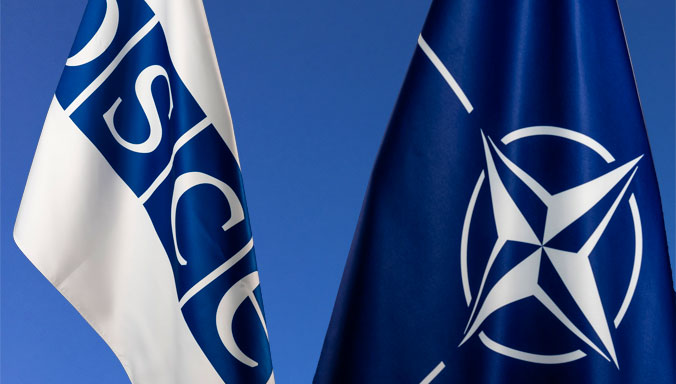 NATO IS NOT BRAIN-DEAD: HOW CAN OSCE AND NATO HELP STOP THE WAR IN UKRAINE?
NATO IS NOT BRAIN-DEAD: HOW CAN OSCE AND NATO HELP STOP THE WAR IN UKRAINE?
Teoman Ertuğrul TULUN 08.03.2022 -
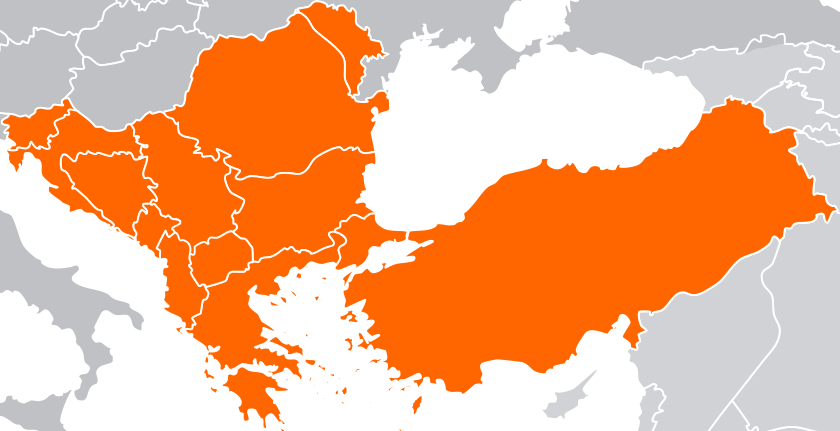 BALKANS 2016: INTEGRATION EFFORTS IN A TIME OF UNCERTAINITY
BALKANS 2016: INTEGRATION EFFORTS IN A TIME OF UNCERTAINITY
Teoman Ertuğrul TULUN 09.01.2017 -
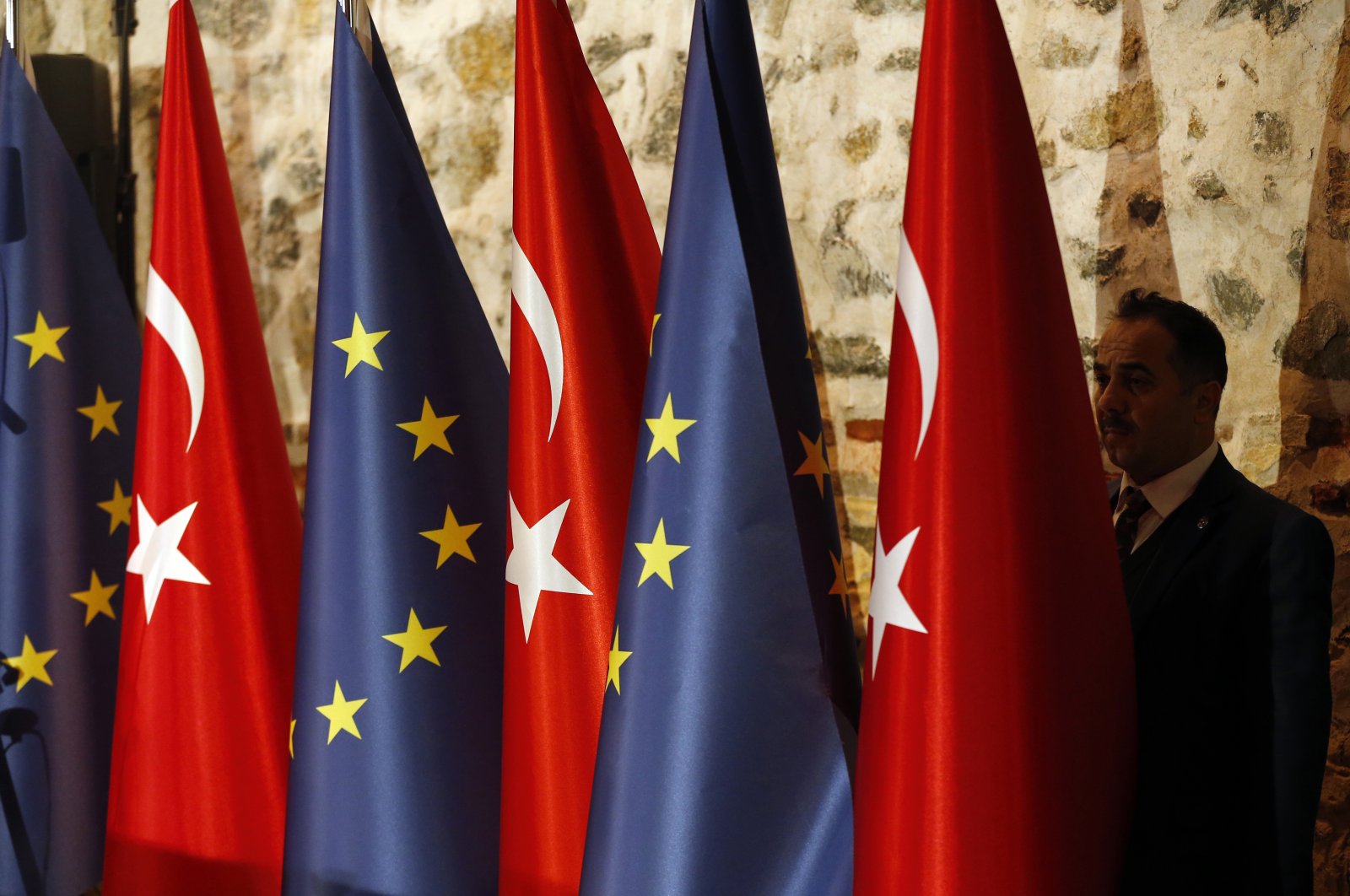 CHANGING PERCEPTIONS: THE EUROPEAN UNION INSTITUTE AND TÜRKİYE'S ROLE IN EU SECURITY POLICY
CHANGING PERCEPTIONS: THE EUROPEAN UNION INSTITUTE AND TÜRKİYE'S ROLE IN EU SECURITY POLICY
Teoman Ertuğrul TULUN 26.06.2024 -
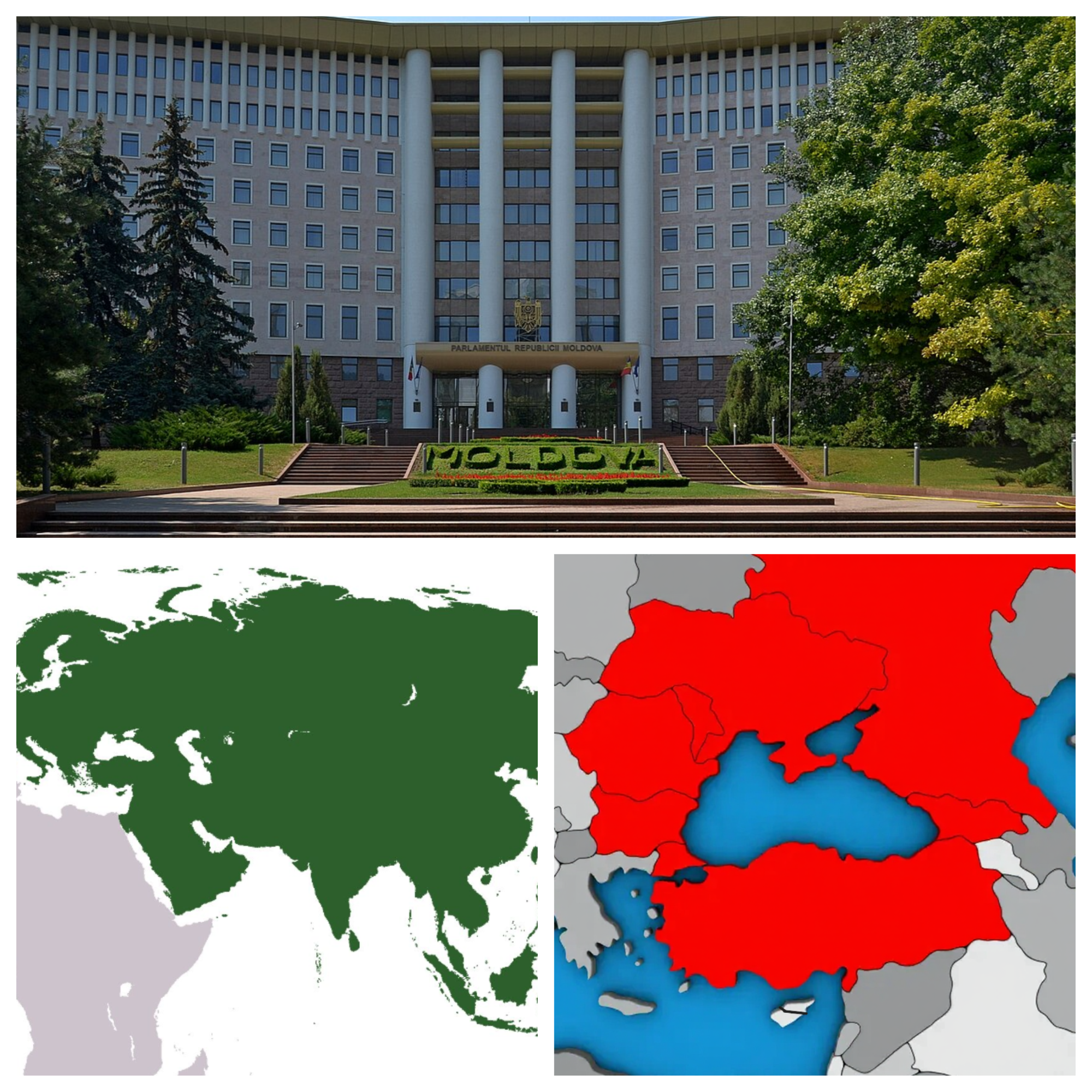 REFORMING MOLDOVA: STABILITY THROUGH CONSTRUCTIVE EURASIANISM
REFORMING MOLDOVA: STABILITY THROUGH CONSTRUCTIVE EURASIANISM
Teoman Ertuğrul TULUN 24.10.2025 -
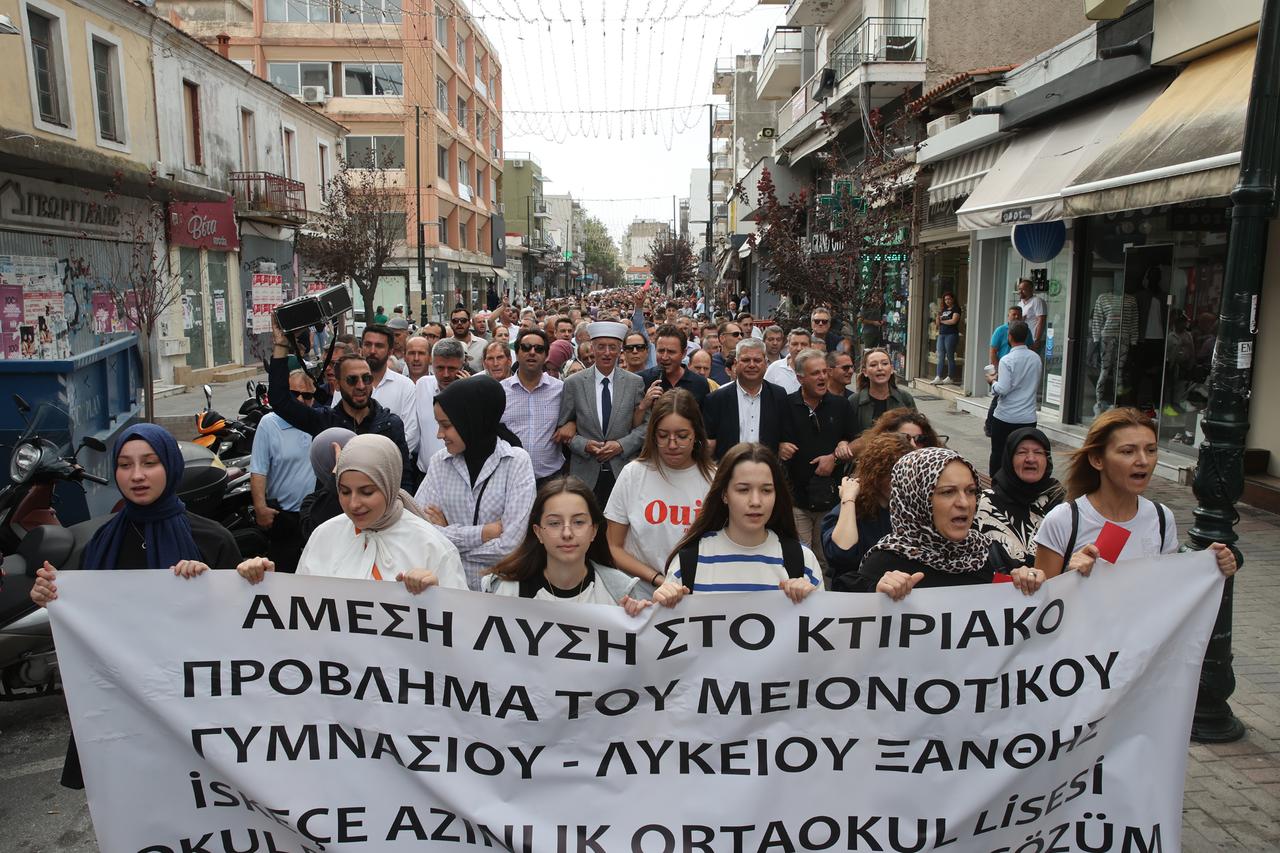 GREEK POLICIES TOWARDS TURKISH MINORITY SCHOOLS RISK REPEATING HISTORY
GREEK POLICIES TOWARDS TURKISH MINORITY SCHOOLS RISK REPEATING HISTORY
Teoman Ertuğrul TULUN 19.08.2025
-
 THE EVENTS OF 1915 AND THE WORD “DEPORTATION”
THE EVENTS OF 1915 AND THE WORD “DEPORTATION”
Mehmet Oğuzhan TULUN 08.02.2015 -
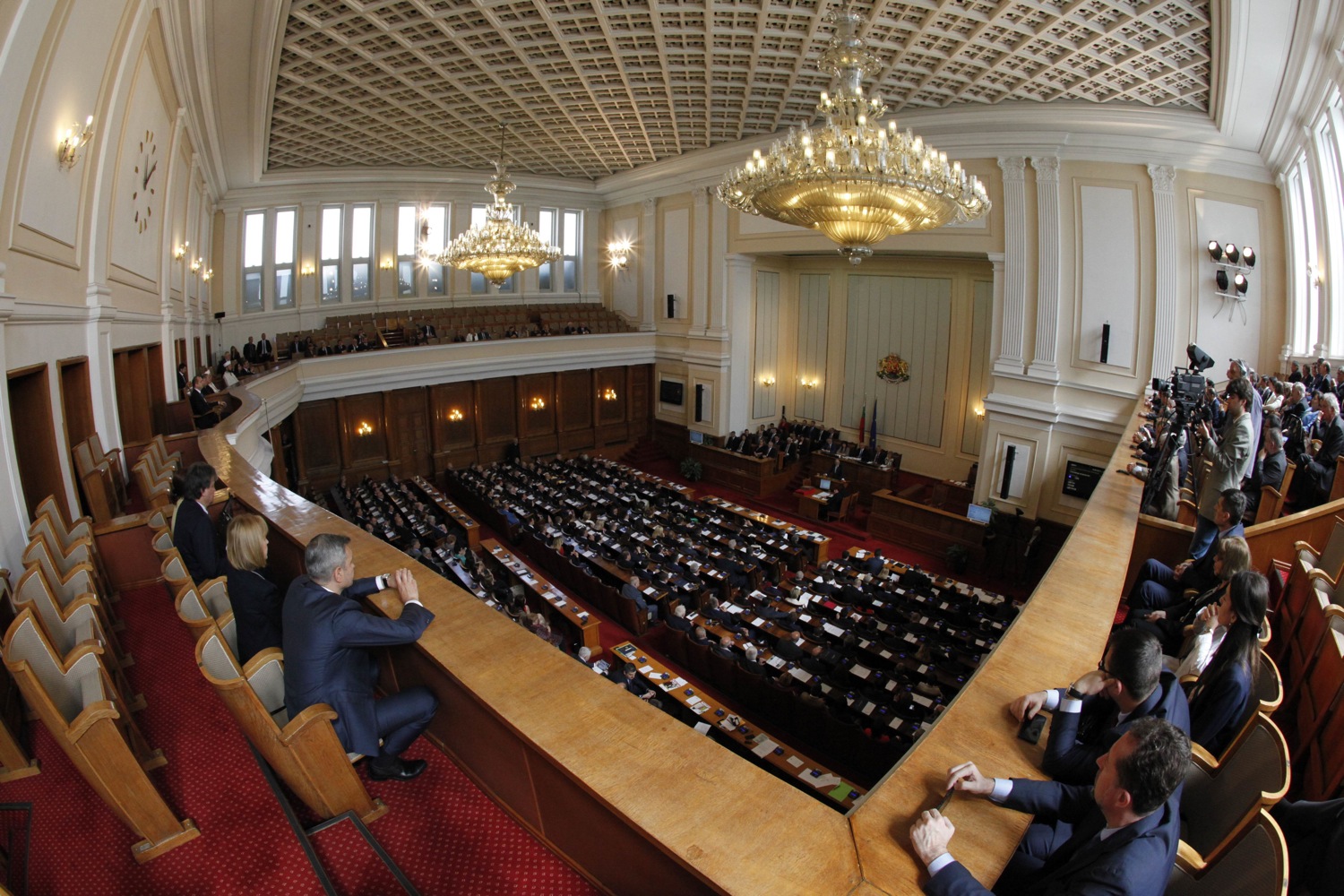 THE NECESSITY FOR A GOVERNMENT THAT CAN PULL BULGARIA OUT OF CRISIS
THE NECESSITY FOR A GOVERNMENT THAT CAN PULL BULGARIA OUT OF CRISIS
Gözde KILIÇ YAŞIN 29.05.2023 -
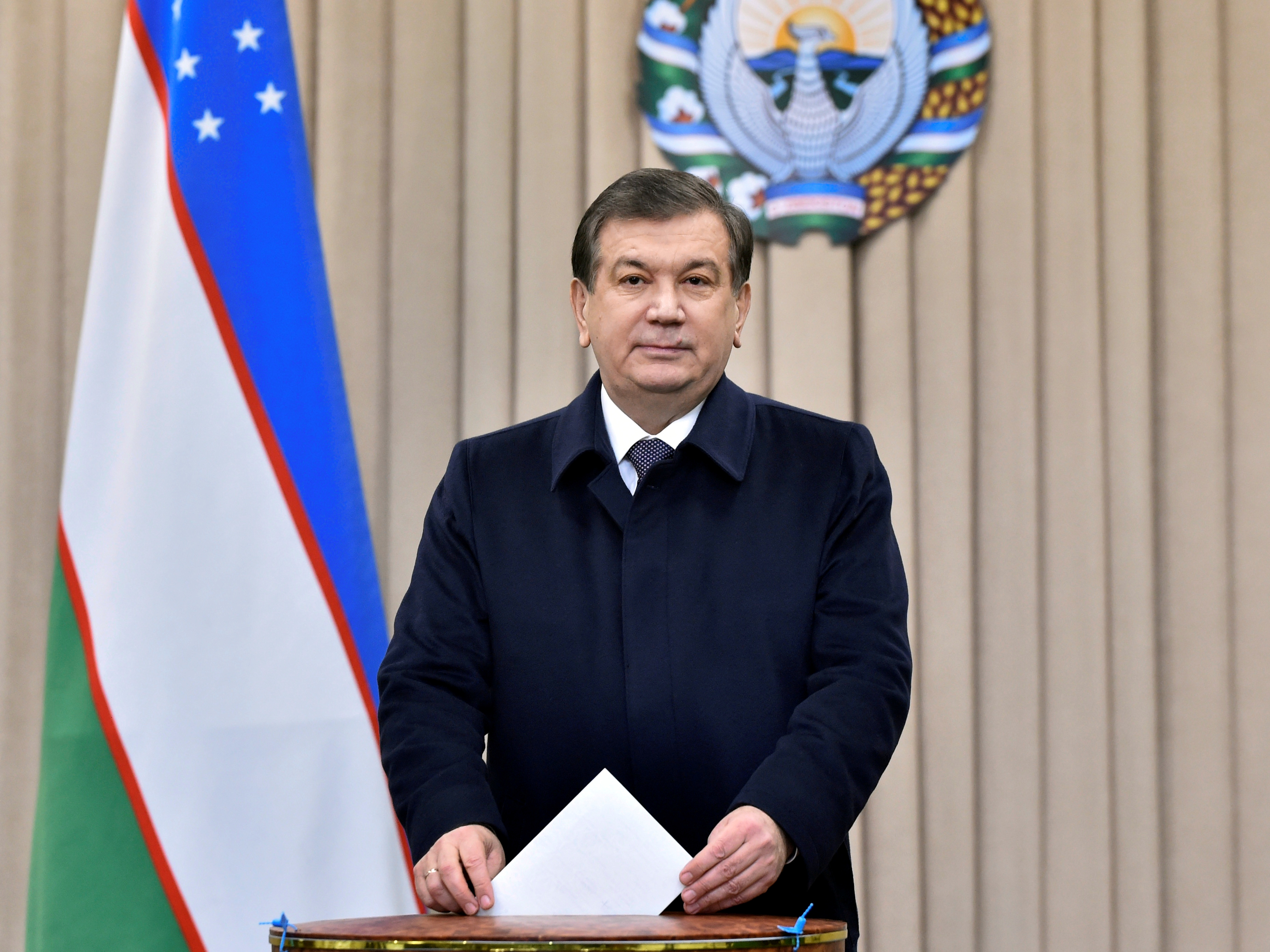 UZBEKISTAN’S REGIONAL POLICIES UNDER NEW PRESIDENT: A NEW ERA?
UZBEKISTAN’S REGIONAL POLICIES UNDER NEW PRESIDENT: A NEW ERA?
Özge Nur ÖĞÜTCÜ 18.08.2017 -
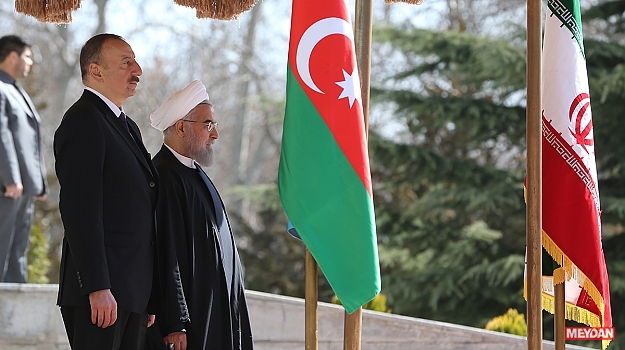 IRAN SEEKING NEW MARKETS IN THE SOUTH CAUCASUS: AZERBAIJAN
IRAN SEEKING NEW MARKETS IN THE SOUTH CAUCASUS: AZERBAIJAN
Özge Nur ÖĞÜTCÜ 18.03.2016 -
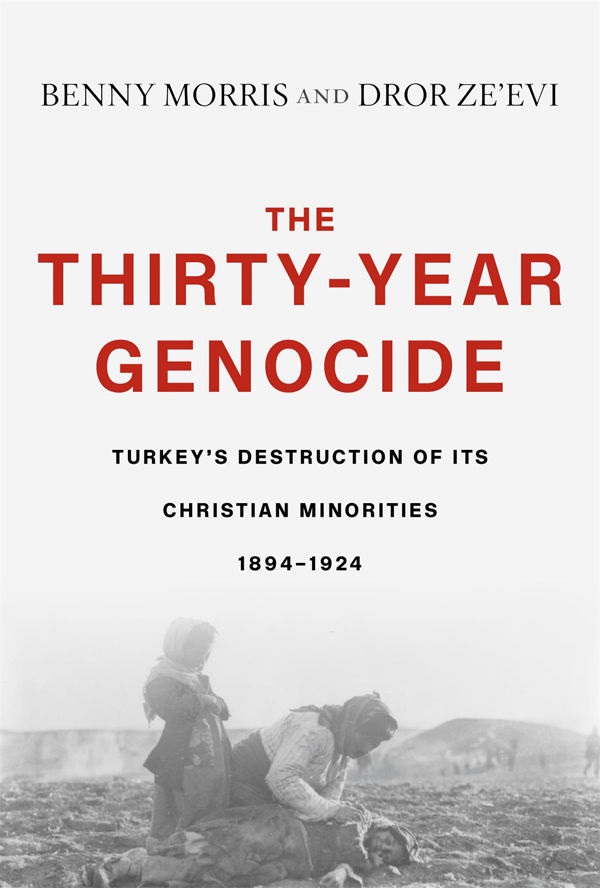 BOOK REVIEW: THE THIRTY-YEAR GENOCIDE
BOOK REVIEW: THE THIRTY-YEAR GENOCIDE
AVİM 21.08.2019
-
25.01.2016
THE ARMENIAN QUESTION - BASIC KNOWLEDGE AND DOCUMENTATION -
12.06.2024
THE TRUTH WILL OUT -
27.03.2023
RADİKAL ERMENİ UNSURLARCA GERÇEKLEŞTİRİLEN MEZALİMLER VE VANDALİZM -
17.03.2023
PATRIOTISM PERVERTED -
23.02.2023
MEN ARE LIKE THAT -
03.02.2023
BAKÜ-TİFLİS-CEYHAN BORU HATTININ YAŞANAN TARİHİ -
16.12.2022
INTERNATIONAL SCHOLARS ON THE EVENTS OF 1915 -
07.12.2022
FAKE PHOTOS AND THE ARMENIAN PROPAGANDA -
07.12.2022
ERMENİ PROPAGANDASI VE SAHTE RESİMLER -
01.01.2022
A Letter From Japan - Strategically Mum: The Silence of the Armenians -
01.01.2022
Japonya'dan Bir Mektup - Stratejik Suskunluk: Ermenilerin Sessizliği -
03.06.2020
Anastas Mikoyan: Confessions of an Armenian Bolshevik -
08.04.2020
Sovyet Sonrası Ukrayna’da Devlet, Toplum ve Siyaset - Değişen Dinamikler, Dönüşen Kimlikler -
12.06.2018
Ermeni Sorunuyla İlgili İngiliz Belgeleri (1912-1923) - British Documents on Armenian Question (1912-1923) -
02.12.2016
Turkish-Russian Academics: A Historical Study on the Caucasus -
01.07.2016
Gürcistan'daki Müslüman Topluluklar: Azınlık Hakları, Kimlik, Siyaset -
10.03.2016
Armenian Diaspora: Diaspora, State and the Imagination of the Republic of Armenia -
24.01.2016
ERMENİ SORUNU - TEMEL BİLGİ VE BELGELER (2. BASKI)
-
AVİM Conference Hall 24.01.2023
CONFERENCE TITLED “HUNGARY’S PERSPECTIVES ON THE TURKIC WORLD"









